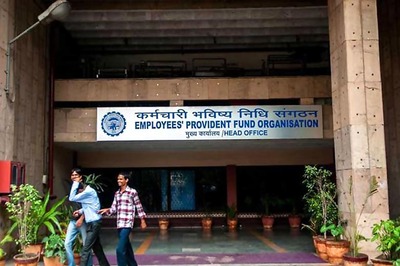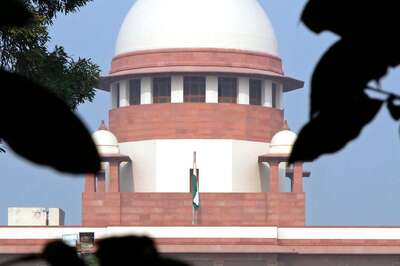
views
Shah Jahan Regency
Cast: Parambrata Chatterjee, Anjan Dutt, Abir Chatterjee, Mamata Shankar, Rituparno Sengupta, Swastika Mukherjee, Rittika Sen.
Director: Srijit Mukherjee
The Best Exotic Marigold Hotel in 2011 and The Second Best Marigold Hotel in 2015, both helmed by Britain's John Madden with India's Dev Patel playing in both, were delightful, comical and examined a motley group of foreign men and women who stayed there. Mostly elderly, these people came to the hotel in Jaipur with angst and anxieties, their own peculiar baggage – making up for a great story. Of course, Bengali writer Shankar when he wrote Chowringhee in 1962 could have had no inkling about what was to emerge from Madden decades later. And Shankar's book was certainly novel then.
Chowringhee was set in the Calcutta of the mid-1950s, and the novel gripped us with its descriptions and analyses of what was happening in Hotel Shah Jahan.
First adapted for the big screen in 1968 by Pinaki Bhushan Mukherjee, Chowringhee starred the iconic matinee idol, Uttam Kumar – along with Supriya Devi, Utpal Dutt and Biswajit Chatterjee.
Fifty years later, Srijit Mukherjee, with some memorable works like Autograph and Baishe Srabon, returns to Shankar's story of the hotel in what is now called Kolkata. If one remembers the novel right, Mukherjee sticks more or less to the literary work – which is, in a way, one of the pitfalls of the movie. There are too many narratives, which probably could have been tackled with some intelligent editing, and the film calls for at least two viewings for a more nuanced appreciation.
But, nonetheless, what is remarkable about Mukherjee's latest outing, titled Shah Jahan Regency in Bengali, is its leisurely pace – so very typical of life in Kolkata. There is still an easy going charm about the city, bustling though it is with millions of men. And the movie captures this spirit with compelling realism. Like, for instance, when Rudra (played with dignified subtlety by Parambrata Chatterjee, who is still known for non-Bengali audiences as the cop in Kahani) as a trainee in Shah Jahan Regency has the time and patience to stand and hear Rituparno Sengupta's Gayathri Chakraborty playing a sur-bahar (sitar-like instrument) in the hotel lobby. This is so very Bengali – which Mukherjee has captured in all its delicate finesse.
And the kind of camaraderie and easy going attitude which Shah Jahan Regency presents between the owner of the hotel, Makaranda Pal (essayed by Anjan Dutt, who once worked in The Statesman as a feature writer before Mrinal Sen discovered his acting potential) and between Rudra and the Regency's chief receptionist, Samiran Bose (Abir Chatterjee), are also part of the Bengali milieu and culture. All these give a lovely flavour to the screen adaptation.
At one level, one may feel that there is not much of a plot in Shah Jahan Regency. But a closer look will reveal how Mukherjee has carried his camera into the multitude of rooms and corridors to give us a multitude of stories, each of which can by itself be developed into a full-fledged narrative: Pal's drunken bouts reflecting his deep marital discord with an actress wife refusing to give him a divorce unless he agrees to an almost filmi plan; the wretched life of a high-class escort, Kamalini Guha (Swastika Mukherjee), who lives in one of the hotel's palatial suits, having been forced into this corner by familial compulsions, Mrs Sarkar's (Mamata Shankar) double life and; the budding love affair between Samiran and air-hostess Supriya (Rittika Sen) that fate cuts short.
Shah Jahan Regency is, therefore, a microcosmic study of a city which once spawned the Bengal Renaissance and whose “bhadralok” culture has, till this day, not been completely erased, despite the modern-day rat race. And Srijit pans his plot across the hotel to give us a view of what lies outside. Of what the city is all about.
Rating: 3/5

















Comments
0 comment